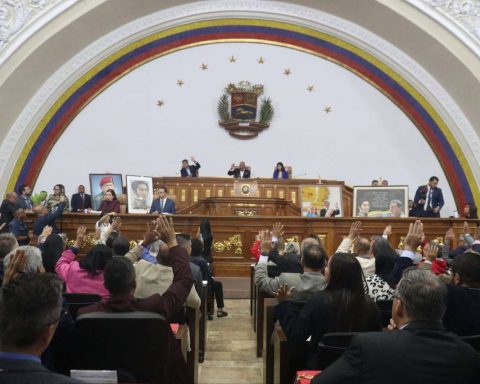The tension in the health sector does not subside. Alejandro Gaviria, current Minister of Education, but also former Minister of Health, He referred to what has been said about the health reform in Colombia, inferring that it should be based on a clear diagnosis.
Gaviria harshly criticized some aspects of the project during the Council of Ministers, referring to its concerns about the little that is known about the possible reform. The official assured that without a clear diagnosis, nor an answer to the questions raised regarding the bill, it can be done “much damage”.
(See: Alejandro Gaviria’s objections to the health reform).
“Every reform effort must begin with a diagnosis, with an analysis of what works and does not work, with an evaluation of the installed capacities (we never start from scratch) and the heterogeneous territorial realities,” warned Gaviria.
The minister stated that eliminating the EPS does not solve financial unsustainability, corruption and territorial inequalities that the system faces. In the same way, from his point of view, it is insinuating that the problems around health originate from the administration, when they are related “more with inequality”.
Additionally, he stressed that “Colombia’s experience with public single payers has been disastrous. It was with the so-called free assignment of Social Security in 1996, with the direct recoveries from Fosyga for care for the displaced population in 2001 (…). The country remembers the posters of hemophilia, HIV, psychiatric patients, and others“.
(See: Access to health services in Colombia would exceed 73%).
The former head of the Health portfolio indicated that he is considering a strange strategy that seeks to destroy what works in cities to fix what doesn’t work in rural areas.
“Instead of trying to adapt a primary care strategy to the system, the reform tries to adapt the entire system to a primary care strategy. a strange logic“, he stated.
(See: Only 1 in 3 Colombians would migrate to a public health system).
Looking at the doubts that still exist regarding the reform, the text of which has not yet been publicized, the official took the opportunity to affirm that the current system has many strengths “the product of thirty years of innovation and collective work”, for that “destroying it would be suicide.”
Alejandro Gaviria, Minister of Education
Faced with the statements given by Alejandro Gaviria, health actors have stated that the statements are pertinent and proposals of the minister taking into account that “is in the capacity to lead inside and outside the Government the construction of a great national consensus, around the concern of President Petro to strengthen preventive medicine and primary care”, thus confirmed Gustavo Morales Cobo, former president of Acemi.
Additionally, he stated that it is possible that these statements lead to a great reflection by the Minister of Health, Carolina Corcho, to achieve the objectives that the Government seeks to achieve with respect to the health system.
“I believe that Education Minister Gaviria, having been Health Minister for six years, feels a responsibility to that sector and is making a contribution to the debate. And what corresponds to a minister with stature, as we believe Carolina Corcho is, is to thank the contribution, evaluate each argument and if she has better ones, she will know how to present them and if she does not have them, she will know how to thank them, because without a doubt they will help her a lot to improve reformMorales Cobo said.
(See: Health reform: uncertainties due to lack of socialization).
Besides, Gustavo Quintero, dean of the School of Medicine and Health Sciences of the Universidad del Rosario, stated that the statements of Alejandro Gaviria “they must be taken into account since they are pertinent and come from a person who knows deeply the reality of the health system and also the country. not a theoretician“, said.
BRIEFCASE

















